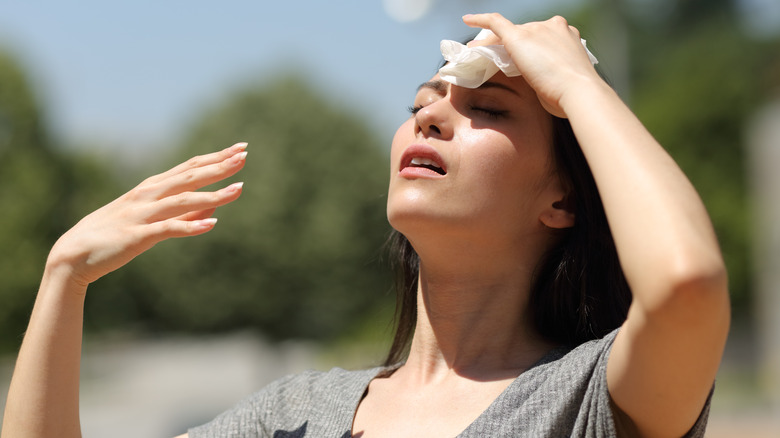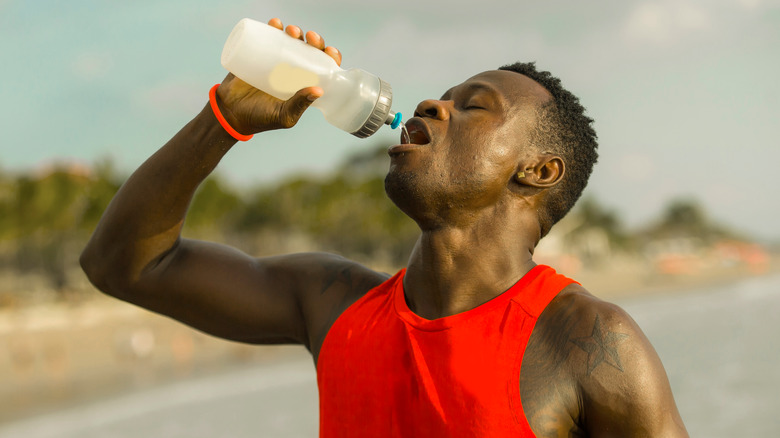Signs Your Body Is Starting To Overheat
Whether it's a day at the beach, a hike on your favorite trail, or a long bike ride, there are plenty of ways we love to spend time in the sunshine. As you prepare, it's important to know the signs that you could be overheating. According to the Centers for Disease Control and Prevention (CDC), heat exhaustion happens when the body loses too much water and salt, typically through sweating. It can be caused by dehydration, and can be accompanied by other serious heat-related illnesses like heat stroke, heat rash, and heat cramps.
Heat exhaustion can have major effects on an individual's health and wellbeing, but there are ways to prevent it. Properly identifying the warning signs is the first step. According to The Healthy, signs you are starting to overheat can include sweating profusely, heat rash, dizziness, and muscle cramps. Dr. Troy Madsen, an emergency physician, tells The University of Utah, "So this is when you start to feel very hot, maybe you feel lightheaded, a little bit nauseous, maybe a headache. This is when your body is overheating, your body temperature is rising."
Once you notice these signs, it's crucial to take the appropriate steps right away.
How to respond to these signs
Taking quick action against heat exhaustion allows for the best outcome. According to the CDC, the first priority is to cool down your body's temperature. You can do this by finding a location that provides shade, sitting in an air-conditioned building, placing a cool compress on your forehead, or taking a cool shower or bath, notes the Cleveland Clinic. The CDC suggests loosening your clothes and placing cool, wet cloths on your body. The next step is rehydrating and replenishing with fluids like water or a sports drink with electrolytes. Allow your body to rest and reset before exposing it to high temperatures again.
If you start vomiting, or your symptoms get worse or do not improve after an hour of taking the appropriate steps, it is time to seek help from a medical professional, warns the CDC. Dr. Thomas Waters, an emergency physician, explains to the Cleveland Clinic that heat exhaustion can escalate into heatstroke if the necessary steps aren't taken. "Heatstroke is an emergency. It can become deadly very quickly," says Dr. Waters. "The most important thing you can do is pay attention to the warning signs and listen to your body."


